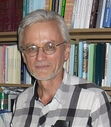Alexander J. Motyl's Blog, page 7
September 15, 2015
Ukrainians Impatient With Pace of Reforms

Ukrainians are angry. The standard refrains are that there are no reforms and that Ukraine is worse off than it used to be.
Such deep-seated anger was at the root of the violent demonstration at the Parliament a few weeks ago. Most commentators focused on the violence and its implications for Ukraine’s democracy. In fact, despite the Western media’s bizarre infatuation with Ukraine’s radical right, it is tiny and poses no threat to the system.
Far more worrisome is the widespread popular anger and growing popular radicalism.
Angry people who make radical demands—of the we-want-everything-immediately variety—and mistrust their leaders make for illegitimate and unstable rule. At some point, illegitimate and unstable rule can crumble. If Ukraine ever comes unglued, it’ll be because popular anger produced a third Maidan that destroyed Ukraine’s fledgling institutions and either created chaos or brought radicals to power. All Ukrainians would lose. Vladimir Putin would win.
Radicalism is appropriate in revolutionary situations such as the second Maidan in early 2014. Radical talk can also remind established elites of what they need to do. Consider Martin Luther King’s “I have a dream” speech in Washington, DC: “This is no time to engage in the luxury of cooling off or to take the tranquilizing drug of gradualism…. It would be fatal for the nation to overlook the urgency of the moment…. The whirlwinds of revolt will continue to shake the foundations of our nation until the bright day of justice emerges.”
Radicalism makes for awful politics in normal or semi-normal conditions. People who want it all right away are making demands that no system, no matter how effective or legitimate, can meet. Normal politics is about compromise, about second or third best, about good enough. If everyone insists on everything right away, violence or dictatorship is often the result.
A just-released public opinion survey by the respected Democratic Initiatives organization suggests what ails Ukrainians. Thus, 48.4 percent believe there have been no reforms; 24.6 percent that only a tenth of possible reforms have taken place.
When asked to identify who was responsible for the absence of reform, Ukrainians targeted the oligarchs (51.5 percent), the government (51.5 percent), the majority coalition in Parliament (44.5 percent), the bureaucrats (44 percent), and the president (39.1 percent).
When asked who drives reform, 36.8 percent said it’s the president, 32 percent the government, 22.1 percent the coalition majority, 6.9 percent the oligarchs, and 5.5 percent the bureaucrats.
Subtract the latter percentage from the former and you get each actor’s reform-mindedness: –44.6 for the oligarchs, –38.5 for the bureaucrats, –22.5 for the coalition, –19.5 for the government, and –2.3 for the president.
The distribution of responsibility is about right. Ukraine’s main political problem is the symbiosis between a bloated and corrupt state bureaucracy and the oligarchic class. Even if the president, Rada, and government did everything according to some reformist blueprint, weakening that monstrous apparatus would be difficult and take time.
But consider this: despite the fact that the state apparatus remains unreformed, comprehensive reform has taken place. Take a look at the assessments by VoxUkraine and the Carnegie Endowment for International Peace. There may be too little reform, and it may be too slow, but it is not unimpressive—especially compared to where Ukraine was a year ago. Dare I suggest that reform is possible even in a corrupt state? Look at Italy, a very nice country that is probably marginally less corrupt than Ukraine.
The survey also shows which reform areas Ukrainians consider most and least important. The former include corruption (65.2 percent), law and order (58 percent), pensions (39.9 percent), and health (35.9 percent). The latter include taxes (21.5 percent), decentralization (17.8 percent), deregulation and investments (14 percent), and land reform (8.1 percent).
In a word, Ukrainians want change in the areas that affect their lives immediately and closely. They regard as unimportant the very things experts consider most important—the components of a healthy economy.
The reasons for popular anger now become clearer.
First, Kyiv has focused on the macro-economy, while people want change where they can feel it.
Second, Kyiv has poorly communicated its successes, failures, and intentions to the people.
Third, the oligarchic state apparatus and its leading representatives are not just a brake on reform. They remain unpunished for their malfeasance, corruption, and past crimes—something people who lived through the Revolution of Dignity, have experienced steep drops in living standards, and are sacrificing their lives to defend Ukraine from Putin’s aggression find intolerable, and rightly so.
The good news is that the macro-economy has been stabilized and some economic growth looks likely. The semi-good news is that communicating with folks isn’t rocket science: all the more reason to wonder why the president and prime minister don’t have an occasional borscht with the regular folk.
Fixing the state apparatus will be hardest. I know from my experience with university administrations that they are corrupt, nepotistic, bloated, and resistant to change. If changing them is hard, imagine how much harder changing the apparatus of a large country must be.
That said, sentencing a few high-level corruptioneers and criminals is no rocket science either. President Poroshenko would be well advised to consider this option in addition to slurping down some beet soup.
OG Image:
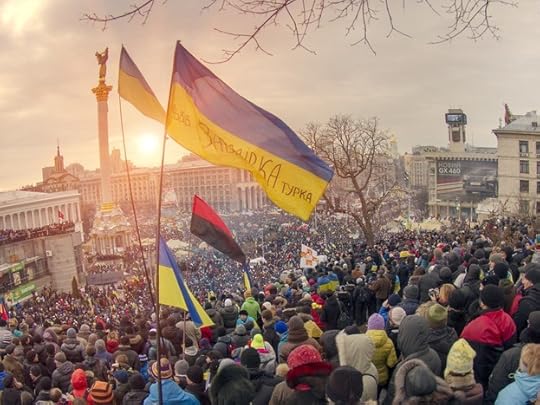 Europe and Central AsiaUkraine
Europe and Central AsiaUkraine
September 4, 2015
Ukraine’s Complicated History

The following is an interview with George Liber, a professor of history at the University of Alabama at Birmingham.
***
MOTYL: Your forthcoming book, Total Wars and the Making of Modern Ukraine, 1914–1954, promises to revise much of the conventional wisdom about Ukraine. What are your main arguments?
LIBER: Between 1914 and 1954, the Ukrainian-speaking territories in East Central Europe suffered almost 15 million “excess deaths” as well as numerous large-scale evacuations and forced population transfers. These losses were the consequences of two world wars, the Holodomor, the Holocaust, violent upheavals, and revolutions.
Because all the political actors in East Central Europe, the strongest and the weakest ones, imagined that their national existence was on the line, they committed many horrific crimes in the course of the 20th century. Genocides and mass killings top the list, but mass evacuations and mass deportations (as televised images of Syrians fleeing ISIS or the Assad government remind us) were not an “orderly and humane” alternative to mass killings.
This continuous violence transformed the Ukrainian-speaking population of East Central Europe into nationally-conscious Ukrainians and Ukraine from a multi-cultural region into a bi-cultural one. Ukraine therefore emerged after independence in 1991 as a key geopolitical pivot and a somewhat divided state.
MOTYL: Ukraine wasn’t a full-fledged state or a geopolitical player in the first half of the 20th century, and yet it was the focus of so much total war. Why?
LIBER: Ukraine is located between Roman Catholic and Orthodox Europe, between Christian Europe and non-Christian Eurasia, and between the Slavic and non-Slavic linguistic zones. After the collapse of Kiev Rus’ in the 13th century, Mongols, Ottoman Turks, Crimean Tatars, Lithuanians, and Poles competed to dominate the territories of present-day Ukraine. In the 17th and 18th centuries, the Polish Commonwealth, Muscovy, the Ottoman Empire, and the Crimean khanate tried to win control over Ukrainian lands. After the partitions of Poland in 1772, 1793, and 1795, the Austrian and Russian Empires dominated this area until 1914.
Then, in the 20th century, Austria-Hungary, Germany, Russia and the USSR, Poland, Romania, and Czechoslovakia clashed over Ukrainian territories. Ukraine served as one of the primary breadbaskets of Europe, and all belligerents during the two world wars needed Ukraine’s natural resources. Grain was just as important as oil for Europe’s mechanized armies. Without Ukrainian grain, they could not feed their armies or populations.
In the first half of the 20th century, these conflicts mobilized the majority Ukrainian-speaking people to demand respect, dignity, and equality with the Russians, Poles, Jews, Romanians, Hungarians, Czechs, and Slovaks. Ukrainians, in effect, started to demand national self-determination. In periods of war and conflict, these demands found mass support, unmaking the Austro-Hungarian, Russian, and Soviet Empires and undermining the concept of “historical” Poland—which once extended beyond the Dnipro River—which many Poles sought to reconstruct in the interwar period. Once Ukrainians embraced national independence, the conflict over this piece of Europe became even more brutal and ferocious.
MOTYL: Most students of nationalism assume that nationalists form nations. You’re arguing the opposite: that cataclysms do. Is it time to rethink our general understanding of how and why nations form?
LIBER: Not exactly. My point is that wars and revolutions are social accelerators of ideas and political movements. I believe in human agency. In periods of historical flux, individuals often have some options—not a full range of options, just some. Oftentimes they pick what they consider the best of several bad ones.
MOTYL: Several bad options? That doesn’t sound like a ringing endorsement of human agency.
LIBER: Although we are all constrained by our environment, we make choices in that environment. Human agency exists. During these total wars, people had the choice to stay or flee. Those who stayed had the choice to fight or submit. Collaboration or resistance did not constitute the only possible responses to foreign occupation. Other possible responses included passivity, withdrawal, neutrality, passive resistance, passive cooperation, alliance-seeking, or merely the hope to survive. Sometimes people responded with a contingent mix of these reactions. Not everyone could consistently or consciously resist over a long, brutal occupation. Most people do not and did not engage in heroics; most sought to do the best they could in dangerous circumstances. Under conditions of such widespread violence, anyone who stood out could be arbitrarily detained or shot.
MOTYL: How does your thesis connect with events in today’s Ukraine?
LIBER: The current Russian war against Ukraine and the problems of the Donbas are not a recent phenomenon, but the product of a long evolution, dating back to the late czarist period, if not before.
MOTYL: Plus ça change?
LIBER: Yes. People, governments, and political cultures do not transform themselves instantaneously or completely over time. The embers of the past warm the present.
MOTYL: Your thesis suggests that Ukraine will continue to be the object of wars for many years to come.
LIBER: Your point is excellent. The historical conditions existing in 1991 (not in 1917–1920 or in 1939–1945) favored the creation of an independent Ukraine, dependent on the approval of Russia, Poland, the United States, and the major countries in Europe. Under President Putin, Russia changed its official position, openly questioning the legitimacy of an independent Ukrainian state and actively seeking to undermine, if not to crush, it. As long as Russia does not recognize Ukraine’s right to exist, a conflict will always simmer between Russia and Ukraine, even if it does not explode into a full-scale war.
MOTYL: History appears to have been very cruel to Ukraine and its many peoples. Are there any lessons, moral or otherwise, to be drawn from Ukraine’s experience with total war?
LIBER: Ukrainians and non-Ukrainians living on Ukrainian territories are like everyone else on this planet, with the same hopes and dreams to better themselves, their families, and communities. Unfortunately, Ukrainians have lived, and still live, in a rough neighborhood, among neighbors who have sought to control their natural resources and labor, and have had to make exceptionally difficult choices in exceptionally difficult circumstances. Historians seek to explore, from the inside, the conditions that affected—not determined—people’s choices and the outcomes of those choices. Moral lessons are easy to draw if one applies fixed moral schemes from the outside. They’re much more difficult if you understand exactly why people chose certain courses of action and not others.
MOTYL: Ç’est la vie?
LIBER: Precisely.
OG Image: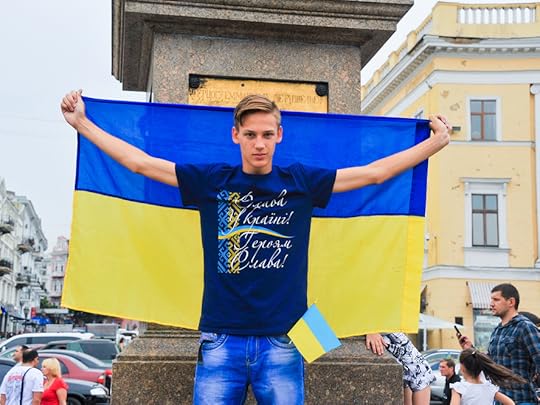 Europe and Central AsiaUkraineEuropeCentral Europe
Europe and Central AsiaUkraineEuropeCentral Europe
August 26, 2015
Back in the USSR
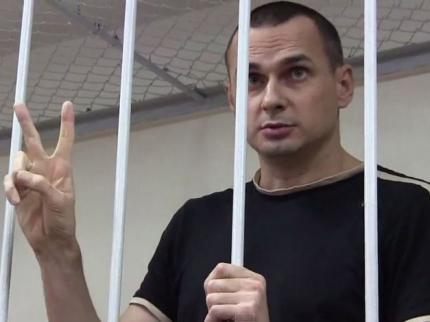
By now you know that a Russian military kangaroo court sentenced Ukrainian film director Oleh Sentsov and Ukrainian civic activist Oleksandr Kolchenko to, respectively, 20 and 10 years imprisonment on trumped-up charges of terrorism. Amnesty International and other human rights groups immediately responded with protests, while Amnesty’s press secretary in Ukraine compared the trial to Stalinist show trials.
I hate to quibble, but the more accurate comparison is with the Soviet trials of dissidents in the 1960s–1980s. Stalinist trials might entail final statements by the accused, but they were invariably pathetic admissions of guilt. Not so in the Brezhnev era, when dissidents concluded their trials with eloquent appeals for justice and human rights.
So, too, in the Sentsov-Kolchenko case. Sentsov’s final remarks are worth reading:
He begins by questioning the legitimacy of the court and, thus, of the trial:
Like [Kolchenko], I am not going to ask for anything from you—to expect consideration here, well, everyone understands that. ... A court of occupiers by definition cannot be just.
Then, like all Soviet dissidents, he denounces conformity and the willingness to adapt to evil:
Cowardice is the main and the worst sin on Earth. Betrayal is a personal form of cowardice. … All of your propaganda is working excellently. Most of the Russian population believes what they are saying: Putin is great. There are fascists in Ukraine. Russia is never wrong. There are enemies everywhere. … But I also understand that there are people who are smarter—such as you, for instance, here—who support the government. You perfectly well understand that there are no fascists in Ukraine. That Crimea was annexed illegally. That your troops are fighting in Donbas. … These are facts that are on the surface. … the troubadours of your regime … know everything as it is, but they continue to lie. Just as you continue your work, finding some sort of rationalization within yourself. Probably, they also rationalize to themselves: “We have to feed our children; we have to do something.” But, guys, what is the point of raising another generation of slaves?
Finally, Sentsov concludes by emphasizing the central dissident leitmotif—the importance of moral courage:
But besides all these people, there is yet another part of the Russian population that knows perfectly well what is going on. That does not believe in the tales of your agitprop. That understands what is happening in the world—what horrible crimes your leadership is committing. But these people are afraid of something. They think that nothing can be changed. That everything will continue as it is. That the system cannot be broken. That they are alone. That there are few of us. That we will all be thrown into prison. That they will kill us, destroy us. And they sit quietly as mice in their holes.
We [Ukrainians] also had a criminal regime, but we came out against it. They didn’t want to listen to us: we beat on trash cans. They didn’t want to see us: we set tires on fire. In the end, we won. The same thing will happen with you, sooner or later. I don’t know what form it will take and I don’t wish to see anyone suffer. I simply wish for you to no longer be governed by criminals. …
Why imprison filmmakers and civic activists? Like the Brezhnev regime, the Putin regime is making a point: that it controls the public space and that it can punish whomever it wants to on whichever charges it wants.
In fact, the Putin regime is doing the exact opposite: establishing its moral and political equivalence with the Brezhnev regime.
Regimes that imprison filmmakers to 20 years are manifestly evil, illegitimate, and weak.
They are evil, because only evil regimes apply disproportionate punishment to the innocent.
They are illegitimate, because only illegitimate regimes believe that repressing the weak makes them look impressive.
And they are weak, because only weak regimes fear free speech and civic courage.
Sentsov and Kolchenko’s fate is tragic, but, as they surely know, they’ll survive and eventually emerge as heroes.
Not so Putin’s criminal regime, which, like Brezhnev’s, will end up on the ash heap of history.
Photo Credit: Euromaiden Press
OG Image: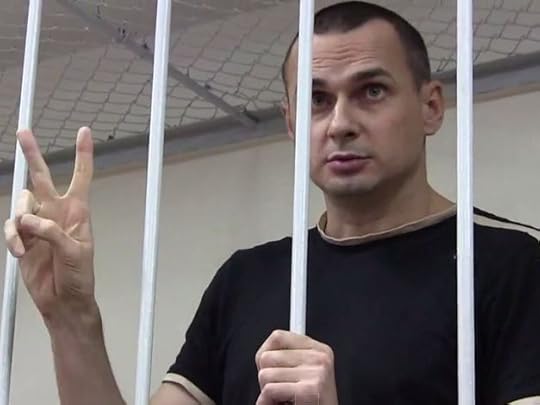 Europe and Central AsiaRussiaRussianUkraineMilitaryAmnesty International
Europe and Central AsiaRussiaRussianUkraineMilitaryAmnesty International
August 21, 2015
Anti-Donbas Sentiment Growing in Ukraine
Is Ukrainian public opinion turning toward getting rid of the Russian-occupied Donbas enclave?
The evidence is beginning to look persuasive. A year ago, the suggestion that Ukraine would be better off without the Russian-occupied bits of Luhansk and Donetsk provinces provoked cries of treason. No more. The view has become legitimate, and it may even be winning the day.
A May 2015 public opinion survey by the Sofia Center for Social Research showed that 61.8 percent of Ukrainians would be willing to give up the occupied territories in exchange for peace. Only 22.9 percent supported continuing military operations until the region’s full liberation. (The survey was not conducted in Crimea or the occupied territories.)
My own conversations—with experts, family members, friends, and colleagues—in June and July in Ukraine revealed only one die-hard supporter of Ukraine’s holding on to the enclave at all costs: a young television journalist. Indeed, I was struck by the prevailing view: people were tired of war, shocked and saddened by the killing and dying, and repulsed by the Russian separatists and their many supporters within the enclave’s population. I’m not exaggerating when I say that the Ukrainians I spoke to felt zero loyalty to it.
Now two highly authoritative voices have joined the growing chorus of anti-enclave sentiments.
On August 3rd, Volodymyr Lanovyy, the liberal economist who served as vice prime minister and minister of the economy in 1992, argued that, by maintaining economic relations with the enclave, Kyiv was effectively financing the enemy that was daily killing its soldiers. According to Lanovyy: “At present, Crimea and the Donetsk-Luhansk enclave have de facto stopped being internal regions of Ukraine.” Given that Russia controls the border, the “occupied lands of Crimea and the Donbas have provisionally entered the political and economic space of the aggressor country”—Russia. Given also that the Ukrainian authorities hold no sway in the enclave, it follows that “all talk of trade, subsidies to the coal mines, salaries to state employees, state-funded pensions according to Ukraine’s norms are simply out of place.”
Then, on August 17th, independent Ukraine’s first president, Leonid Kravchuk, stated the following:
We should finally make an important political decision. We should state that the line of demarcation in the Donbas is the provisional line of separation between the occupied territories of Luhansk and Donetsk provinces and Ukraine. We [should] sever all economic and political relations with these regions controlled by the militants and Russia. They seized power by force. I believe we should give them the opportunity to administer these territories, and life will then test their talents.
All talk of the fact that our people live there and that they should be helped must be removed from the order of the day. This humanism and tears in general give Ukraine nothing. Today, as a result of Russia’s influence, a cancerous growth has formed on this territory. This growth can be eliminated only by surgery and nothing else.
These are strong and unambiguous words. No less important, their author is Kravchuk. Is the architect of Ukraine’s independence and the Soviet Union’s dissolution in 1991 speaking only for himself? Could be. But nothing is ever quite that simple in Ukraine, especially as Lanovyy served as Kravchuk’s economy minister. Are the two coordinating their messages? Are they speaking for some faction in the government?
Their statements are either trial balloons or a harbinger of things to come. Either way, the enclave’s days as a cancer in Ukraine’s body may be limited.
OG Image: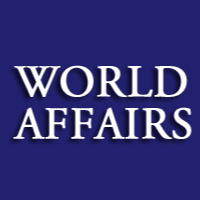 Europe and Central AsiaDonbasUkraine
Europe and Central AsiaDonbasUkraine
August 19, 2015
Putin Destroys Tons of Food Imports. What's Next?

Russian President Vladimir Putin’s wanton destruction of hundreds of tons of Western food products has provoked a storm of criticism.
The outrage is justified, but, no less important, his bizarre behavior gives us an opportunity to test some of the theories that have been applied to Russia’s behavior in the last two years.
Start with realism, the theory of geopolitics, national interests, and hard facts, as preached by John Mearsheimer, Henry Kissinger, and Stephen Cohen.
Realism explains Russia’s annexation of the Crimea and war in eastern Ukraine as a defensive measure made in response to NATO enlargement and American instigation and/or support of Ukraine’s Euromaidan revolution. The West supposedly tried to wrest Ukraine from Russia’s legitimate sphere of interests, and Russia had no choice but to defend itself by playing hardball in Ukraine.
As I’ve written, realism gets the facts wrong and mixes causes with effects—NATO was and still is a paper tiger and Western mobilization in support of Ukraine happened after Russia’s intervention—but no matter. The logic of the theory is clear enough, and, when taken on its own terms, not unpersuasive. Unfortunately, it’s incapable of making any sense of Putin’s anti-food measures. One would have to think of the food that Russia destroyed as a Western form of geopolitical aggression for realism to have any traction. That, obviously, makes little sense. So, forget realism.
Theories that explain Russia’s aggressive behavior in terms of Putin’s need to pander to the Russian people also fall flat. No people looks at the destruction of precious foodstuffs with equanimity, and the Russians are no exception. Ditto for theories that explain Putin’s warmongering in terms of some putative need to pander to special interests. Russia’s food producers may have greeted the destruction, but they play no role in the decisionmaking process in the Kremlin, and it would make no sense for Putin to act bizarrely on their behalf.
Theories that focus on the hyper-centralized nature of the Russian political system fare much better. If you think of Russia as a deeply authoritarian (or, as I suggest, fascist) system with all power concentrated in the hands of the dictator, we would expect Putin to be prone to tactical and strategic mistakes. Hyper-centralized authority structures encourage kowtowing behavior by elites, distort the flow of information to the leader, place an enormous decisionmaking burden on his shoulders, and thereby make blunders inevitable. Seen in this light, the Crimean annexation, the attack on the Donbas, and now the destruction of food are all part of a chain of bad decisions on the part of an overextended and informationally challenged autocrat.
Naturally, the theories that do best in explaining the food destruction are those that claim that Putin has from the start been acting irrationally, perhaps as a result of the demands of his office, perhaps as a result of his personality, biography, or psychology. Seen in this light, perhaps the destruction of food is just the latest link in a chain that goes back to Putin’s childhood and the sense of inadequacy he felt as a youth.
So where do these reflections leave us?
The good news is that Putin’s regime may be on its last legs. There was at least some ideological benefit from annexing the Crimea. Destroying food is just plain stupid. If Putin has truly lost touch with reality, the system he’s constructed is doomed.
Alas, there is also bad news, and the bad news could be very bad. A leader who is irrational enough to do something as dumb as destroy food could be irrational enough to bomb Kyiv, attack Estonia, or try to test NATO’s war-making resolve.
OG Image: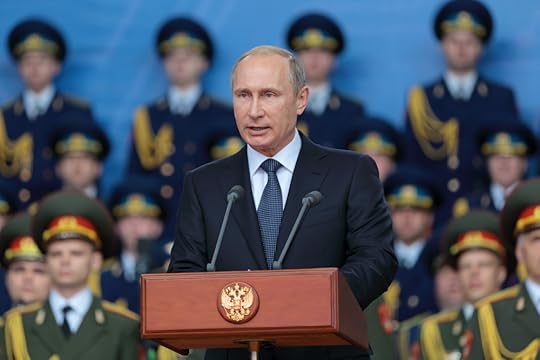 Europe and Central AsiaRussiaRussianUScrimeaUkraineNATOVladimir PutinPresidentHenry Kissinger
Europe and Central AsiaRussiaRussianUScrimeaUkraineNATOVladimir PutinPresidentHenry Kissinger
August 12, 2015
Russia and Ukraine: A Legal Perspective

The following is an interview with Thomas D. Grant, senior research fellow of Wolfson College and senior associate of the Lauterpacht Centre for International Law, both at the University of Cambridge.
***
MOTYL: Your recently published book, Aggression against Ukraine, argues that Russia’s annexation of the Crimea and war in eastern Ukraine is a challenge to international law and global public order at large. Has Russia effectively destroyed the postwar security architecture in Europe?
GRANT: One hopes that there is still time to save the post-1945 system of public order in Europe. The Soviet Union, whatever its faults, had a keen appreciation for territorial stability. The Helsinki Final Act enshrines that appreciation. The Final Act addresses Western concerns over human rights; but the USSR insisted that it also secure the boundaries of Europe against any future attempt to change them by force or threat. In the case of Germany’s borders, the postwar treaty practice went even further: no change at all is permitted, those borders being legally entrenched beyond the general privilege that international law accords to territorial settlements.
Reasons for pessimism about the postwar security architecture however exist. The Russian Federation today seems to have jettisoned the USSR’s relative conservatism. Instead of the principle of territorial stability, the Russian Federation since March 2014 espouses an historicist view that says that old boundaries might be brought again to life, including by force if Russia so chooses. International law had good reason for moving beyond historical claims as a solvent of settled boundaries. Every country has a history. If the law permitted a country to plead new boundaries on the basis of whatever page of its history it chose, then claims to revise the territorial settlement would be without end. Law aims to achieve predictability. A history-based revision of modern territorial relations is inimical to law. In any event, even valid claims are not to be prosecuted by force or threat. We have an orderly process to deal with valid claims—look at the docket of the International Court of Justice for a demonstration of how that process functions when states accord with it. That is the process that we should hope survives the current crisis. And the stable borders that so benefited Europe for 70 years, it is to be hoped, are not thrown into doubt by Russia’s attacks on Ukraine.
MOTYL: Why did Russia act so destructively? Is the system at fault? Putin? Or does the fault lie with the West?
GRANT: Russia’s conduct since the start of 2014 presents a degree of puzzlement. Russia, notwithstanding the grievances it asserts against the West and others, has undergone a stunning transformation since the end of the USSR. The early 2000s in particular, if I understand the economists, witnessed an unprecedented growth in Russia’s wealth. Russia has become connected to the wider world in a way that had been unthinkable in the days of the USSR. This is no isolated state, culturally or economically. Its people travel; its investors are entwined with other countries’ economies; it derives vast income from the export of raw materials and certainly has the potential to do more than that. Yet with the forcible seizure of Ukrainian territory and the cascade of threats and violence that followed, Russia seems to be rejecting the system that, in a fair view, was serving it well.
There are commentators who say that the expansion of NATO or the discussions between the EU and Ukraine precipitated Russia’s aggression. The difficulty is that saying this is to reject one of the cornerstones of modern international law. States are free to choose what states they deal with, and how. States are free to choose what domestic political and social order they maintain as well. The International Court of Justice famously reminded us of this in the Nicaragua v. United States case: it was not for the United States to complain that Nicaragua had formed an alliance with the USSR and elected, under that alliance, to follow the socialist path. This is one of the main reasons why the court came down so hard on the United States in that case. The thing is, in that case, the United States had credible evidence that Nicaragua was actively working, by means of armed force, to overthrow the governments of neighboring Central American states. Nobody believes that Ukraine is using armed force to overthrow, say, the government of Belarus. To say that NATO poses a threat to Russia, likewise, is groundless. The point about the Nicaragua case is this: if Nicaragua’s right to choose its own international and domestic orientation meant that the United States had no right to intervene there, then Ukraine’s right is even more clear; it is an a fortiori case. The West has done nothing to give rise to an international law right of forcible intervention in Ukraine.
One should note in this connection that criticizing a state’s human rights record is not forcible intervention! It is simply holding a state to account when evidence suggests that the state has failed to accord with its human rights obligations. President Putin’s assertions that the EU has an unlawful agenda, when the EU criticizes Russia’s domestic human rights record, have no validity whatsoever. Chapter 7 in the book addresses Russia’s idea that human rights somehow constitutes a threat to Russia’s independence and territorial integrity. I suggest there that that idea relates closely to Russia’s new foreign policy of territorial aggrandizement. I am writing separately at the moment on the old Soviet idea of international intervention. There are some surprising continuities between that idea and the Russian Federation’s present ideological orientation. Russia’s jettisoning of the Soviet belief in stability of boundaries is a profound discontinuity, and dangerous—yet plus ça change…
MOTYL: What can the international community—the United Nations, the European Union, the West—do to repair the damage Russia did to international law?
GRANT: A range of options exists for repairing the damage. Many of the options, or most, can be pursued together; they are not mutually exclusive. Ukraine, for example, already has brought inter-state claims against Russia under the European Convention on Human Rights. How the Strasbourg court decides will depend on the application of the convention to the facts of the case, but the Cyprus v. Turkey case suggests one of the possibilities: the court there held the occupying power responsible for payment of substantial compensation. I have suggested elsewhere some of the other procedural mechanisms that Ukraine might invoke in its resistance against Russia’s attack. (See for example the Chicago Journal of International Law, volume 16.1.)
As for the general response—that is to say, the response by states at large—this is important as well. A core principle of international law is that no state shall recognize, or imply the recognition, of a situation that has resulted from a serious breach of international law. A corollary to that principle is that all states shall cooperate to bring an end to the situation. Applied to Russia, this means that all states must refrain from recognizing Russia’s unlawful annexation of Crimea; must refrain from recognizing Russia’s unlawful attempt to separate Donetsk and Luhansk from Ukraine by force; and must cooperate to bring an end to the situation in Ukraine that has resulted from Russia’s armed attack. How exactly states shall engage in this cooperation is not specified under international law. Sanctions against Russia, in my view, are consistent with states’ obligation to cooperate. There is also the right of Ukraine, under Article 51 of the UN Charter, to self-defense. This is an inherent right; it does not depend upon its embodiment in Article 51; and no procedural step by the UN is needed for Ukraine to invoke the right. Moreover, the right also involves the right of collective self-defense. It is within Ukraine’s right to call upon other states to assist it with its defense. Now, states inevitably will enter into prudential calculations about involving themselves in Ukraine’s defense. It would not however be convincing for them to say that international law compels them to refrain from involving themselves. International law compels nothing of the sort. To the contrary, international law envisages collective response to aggression.
MOTYL: What should Ukraine and its friends do about Crimea and the Donbas?
GRANT: The answer to this question, to some extent, follows from the answer to the preceding question. First, nobody should say or do anything that gives even the slightest indication of acceptance of or acquiescence in Russia’s unlawful presence in those parts of Ukraine. Second—and this is a point distinct from the answer above—Ukraine and its friends should insist on accurate reporting of the facts. The principal institutions of international law available to address the situation have been absolutely clear about the facts. For example, the referenda purporting to have separated those regions are not valid. The General Assembly and Parliamentary Assembly of the Council of Europe are among the institutions that have said so. And observers, including those of the OSCE, dismiss out of hand Russia’s fiction that Russia’s men and materiel are not involved in the fighting in the eastern part of Ukraine. Western media should not indulge that fiction. They should reject it. Russia is involved; this is not a civil conflict; it is an armed invasion. Ukraine and its friends should continuously remind people and governments of the facts.
MOTYL: Can you imagine Russia’s being reintegrated into the international community anytime soon?
GRANT: Our international system is resilient. It is so resilient that even a state that has carried out aggression against its neighbor continues to be a member of the international community, at least in some sense. This at times can exasperate those who seek to hold the aggressor to account. Why, one might ask, do we “let” Russia sit in the General Assembly of the United Nations? Why does Russia wield a veto in the Security Council? Why do we continue to have diplomatic relations with Russia? The answer to these questions is that countries are too deeply interconnected today for the international community as a whole to cut off a country entirely from the community. This at any rate goes for most countries. So I do not believe that we yet have reached the point where Russia is going to be thrown out of the international community as such. This is not really the way to look at it.
Instead, we are looking at a range of sanctions that countries should adopt against Russia to impose as much cost on Russia for its aggression as we can it. We should also be looking at more vigorous steps to help Ukraine in its lawful exercise of the right of self-defense.
I would add that membership in the international community does not mean the same thing for all countries at all times. If no action is taken, Russia will be hosting the FIFA World Cup in 2018. This will make a sorry spectacle. Governments should consider whether they really wish to lend credibility to the current Russian government by being its guests for this sort of event. Some channels must always remain open, even to the worst violators of international law; but others should be closed until the violator returns to lawful conduct.
To answer the question directly: the full normalization of relations with Russia must await Russia’s reversal of its aggression against Ukraine. This means the withdrawal of Russia from Crimea and the Donbas. It also means reparation from Russia for the injuries that Russia’s aggression to date has caused Ukraine and others. This is not about punitive measures against Russia. It is about appropriate measures that Russia must take to reverse its serious breaches of international law and to reverse the consequences of those breaches.
OG Image: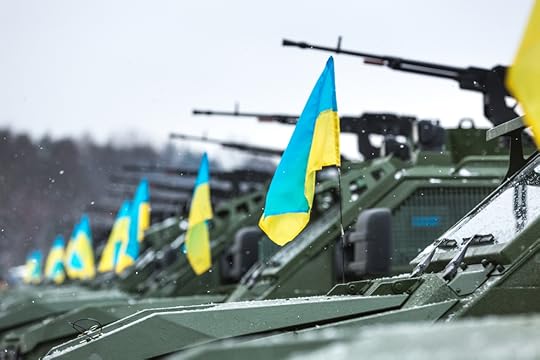 Europe and Central AsiaUkraineRussiaVladimir PutinUkraine ConflictUkraine CeasefireRussia-Ukraine relations
Europe and Central AsiaUkraineRussiaVladimir PutinUkraine ConflictUkraine CeasefireRussia-Ukraine relations
August 4, 2015
Ukraine’s August Blues

August is when most of Europe closes down, as people dash to their country homes or head for resorts. Beaches overflow; fun becomes mandatory. A perfect tan is all that matters.
What a wonderful time to forget that the war in eastern Ukraine will continue to rage, perhaps even intensify.
Vladimir Putin’s terrorists, commandoes, mercenaries, and troops will keep on violating the Minsk 2 accords by shelling Ukrainian territory and killing Ukrainian citizens and soldiers. Yesterday, four soldiers lost their lives. The day before it was, I think, one. The day before that—none. The day before that: was it two? I forget.
Who’s counting anymore? We’ve all become jaded by the steady trickle of single digits. Remember the shock everyone felt during the Maidan Revolution, when the first demonstrators were killed? No more. Putin has achieved nothing with his aggression except one thing: to inure us to death.
And just why are they dying? Ah, yes: for that lovely bit of Ukraine called the Donbas.
Germany’s “iron chancellor,” Otto von Bismarck, famously quipped that the “Balkans aren’t worth the bones of a single Pomeranian grenadier.” Since Prussians regarded Pomeranians as a backward folk, his remark was doubly derogatory.
Just how many Ukrainian grenadiers is Luhansk worth? Or Donetsk?
Most Europeans willingly suspend their commitment to European values when the lives of non-EU members are at stake. Aren’t the Ukrainians defending Europe and everything it supposedly stands for? Sure, whatever; pass the sunblock, please, and let’s have another beer.
How many Ukrainians would be willing to become Pomeranian grenadiers? Or let their sons or husbands join that distinguished category? There’ll be lots of time to answer those questions. The war shows no signs of ending, even as the pointlessness of the shelling and killing becomes more obvious with every day.
Putin thinks he can wear Ukraine down. He’s wrong.
Time is on Ukraine’s side, not Russia’s. With every day, Ukraine’s economy strengthens, its state apparatus becomes a tad less dysfunctional, its army a bit more battle-ready, its institutions a little more consolidated. And with every day, Putin Russia moves, steadily but inexorably, in the opposite direction. Russia still has an advantage, for another six months or so. After that, Ukraine’s existence should be pretty much assured.
All that Putin is sure of achieving is more death, more destruction, and Russia’s collapse. Naturally, Putin doesn’t quite see things this way. What’s not to like about more death, especially of those pesky Little Russians? As to Russia, it’s as eternal as he is.
Like all autocrats, Putin has become so predictable. His hubris blinds him to the obvious: he’s doomed to join the lost list of dictators who went down down in flames and dragged their countries along with them.
Poor Russia: the time of troubles that awaits it may make the Donbas war look like a cakewalk.
Poor Europe: if it forgets that the only thing that makes it worth having is European values and that Ukraine is defending those values more assiduously than the Europeans, the EU won’t survive. After all, how many Pomeranian grenadiers is the euro worth?
Poor Ukraine: it’ll have to lose many more lives before it realizes that the Russian-occupied Donbas enclave isn’t worth the toe of a single Ukrainian grenadier.
OG Image: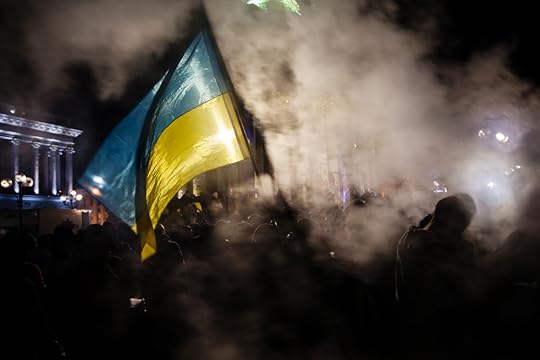 Europe and Central AsiaEuropeUkraineRussiaUSVladimir Putin
Europe and Central AsiaEuropeUkraineRussiaUSVladimir Putin
July 28, 2015
De-Communization, Hannah Arendt, and Ukrainian Nationalism

It’s about 100 days since Ukraine passed its de-communization laws and guess what? The sky hasn’t fallen. The fascists haven’t taken over. Repression hasn’t set in. Which is exactly what those of us who were arguing for the laws were saying all along.
The first bill provides a long list of “fighters for Ukraine’s independence in the 20th century” with legal status. The second one gives people open access to secret police archives. The third reconceptualizes the Soviet-era Great Patriotic War as World War II. The fourth prohibits the propaganda of the Communist and Nazi totalitarian regimes and their symbols. Most of the controversy has centered on the first bill’s list of “fighters,” who include over 100 governments, organizations, movements, and parties, all excoriated by Soviet propaganda. They also include the controversial organized Ukrainian nationalist movement that flourished in western Ukraine in the interwar period and survived in the anti-Soviet underground until the mid-1950s. Opponents of the laws, in both Ukraine and especially the West, have argued that they amounted to carte blanche to persecute nationalist critics.
In fact, the brouhaha over the laws has exposed, yet again, one of the most depressing features of the Ukrainian intellectual landscape: the perennial war between absolutist supporters and absolutist critics of the interwar organized Ukrainian nationalist movement. Supporters uncritically produce hagiographies. Critics uncritically produce jeremiads. Neither side tolerates nuance, complexity, or ambiguity: the nationalists must be either the whitest of heroes or the blackest of devils. People who hope to find a middle ground by arguing that the Ukrainian nationalists, like all nationalists, were black, white and gray, are lost in the noise. As you can imagine, the hagiographers have supported the laws (hey, even F students occasionally get an answer right), while the jeremiahs have damned ’em.
Both sets of absolutists would do well to read Hannah Arendt’s Eichmann in Jerusalem, which unintentionally demonstrates that knowledge is not infallible even when its claims appear to be beyond dispute.
Israeli intelligence agents kidnapped Adolf Eichmann in Argentina on May 11, 1960, and brought him to Jerusalem, where he was tried as a Nazi war criminal and hanged on May 31, 1962. Arendt’s account of the trial’s philosophical and legal shortcomings, her criticism of the wartime Jewish Councils for effectively abetting Nazi policy, and her description of Eichmann as an ordinary man, and not a monster, whose behavior deserved to be characterized by the now-famous term, the “banality of evil,” provoked a storm of protest. There were even attempts to revoke her teaching position at the New School for Social Research.
It was in the epilogue that Arendt addressed an issue of interest to contemporary Ukrainian debates. “Those who are convinced that justice, and nothing else, is the end of law will be inclined to condone the kidnaping act,” she writes. “In this perspective, there existed but one real alternative to what Israel had done: instead of capturing Eichmann and flying him to Israel, the Israeli agents could have killed him right then and there.” Arendt does not disagree. “The notion was not without merit,” she says, “because the facts of the case were beyond dispute.”
Arendt then discusses “two precedents” that involve taking the law into one’s own hands: “There was the case of Shalom Schwartzbard, who in Paris on May 25, 1926, shot and killed Simon Petlyura, former hetman of the Ukrainian armies and responsible for the pogroms during the Russian civil war that claimed about a hundred thousand victims between 1917 and 1920. And there was the case of the Armenian Tehlirian, who, in 1921, in the middle of Berlin, shot to death Talaat Bey, the great killer in the Armenian pogroms of 1915.” (Petliura is not on the “fighters” list, but the governments he headed are.)
Importantly for Arendt, “neither of these assassins was satisfied with killing ‘his’ criminal, but that both immediately gave themselves up to the police and insisted on being tried. Each used his trial to show the world through court procedure what crimes against his people had been committed and gone unpunished.”
Although she never openly says it, it’s clear that Arendt does not disapprove of both assassins’ actions—because they gave themselves up and because the facts do appear to be beyond dispute.
Except that the facts turned out not to be beyond dispute, at least with respect to Petliura.
Arendt’s brief description of Petliura is woefully inaccurate. He was never hetman—that was Pavlo Skoropadsky in 1918; he was not in charge of the “Ukrainian armies” in 1917–20, but in 1919–20; the Russian Civil War began in mid-1918 and not in 1917; and the pogroms that swept Ukraine in 1919 were the work of Ukrainians armies, Red Russian Bolshevik armies, White Russian armies, anarchists, and bandits.
But no matter. The key question is whether Petliura was “responsible for the pogroms.” For years, Petliura’s defenders argued that he was a philo-Semite, while his detractors argued the opposite. Recent academic research by Touro College historian Henry Abramson has shown that Petliura was indeed a philo-Semite who neither instigated, nor ordered the pogroms. Joshua Rubenstein neatly summarizes Abramson’s complex conclusions:
After a close review of the documentary record, Abramson rejects the accusation that Petliura was the architect of the pogroms or that he initiated the infamous attacks in Proskurov (where 1,500 Jews were slaughtered) by his subordinate Semesenko in 1919, an incident that rumor and accusation have long linked to Petliura… At the same time, Abramson accepts the view that Petliura’s hands were tied, and that if he had “chastised his troops adequately,” he would have lost the loyalty of his already disintegrating army at a time when the Red Army was able to field many more soldiers. Petliura was desperate to preserve Ukrainian independence. As Abramson implies, he could not hope to do this and protect Jews in far-flung towns and villages. In the end, though, Petliura’s failure to act decisively against the pogroms did not save Ukraine.
Did Petliura do enough to prevent the pogroms? Some say yes, some say no. Some argue that Ukraine was a “failed state” and that no one could have stopped the killing. Meanwhile, don’t forget that further research could revise Abramson’s conclusions.
Many Ukrainians came to lionize Petliura after he was shot; many Jews demonized him because he “deserved” to be shot. Both sides are wrong. Petliura was a weak leader who was in the wrong place at the wrong time. Schwartzbard thought he was killing a bloodthirsty demon. In reality, he slaughtered a hapless man who was no match for the historical circumstances he faced. The putative hero, Schwartzbard, thus turns out to be a tragic half-devil, and the putative villain, Petliura, turns out to be a tragic half-angel. Both men appear rather more “banal”—and more like each other—than either imagined himself to be.
There is a lesson here for absolutist supporters and critics of Ukrainian nationalism.
Both sides should remember that, if as impressive a scholar as Arendt could have been dead wrong about Petliura, then significantly feebler minds than hers may be wrong about the targets of their venom or adulation. Only unfettered research, an open debate, and the abandonment of absolutist claims and hegemonic narratives can enable scholars to approximate the “facts of the case” about anything. Which is exactly what the de-communization laws will do.
It may be wise to remember that approximations of the truth are the best we can attain. The number of facts comprising the truth about something is always infinite. Moreover, although facts, as by definition true statements about the world, may be “beyond dispute,” their interpretation never is. The claim that the Ukrainian nationalists were angels or devils is at best a weak interpretation only partly supported by “the facts.”
Just as most heroes and villains come and go, so, too, do seemingly infallible academic truths. Both hagiographers and demonizers of Ukrainian nationalism would do well to consider taking a pinch of intellectual and moral humility before they launch their next noise campaign.
OG Image: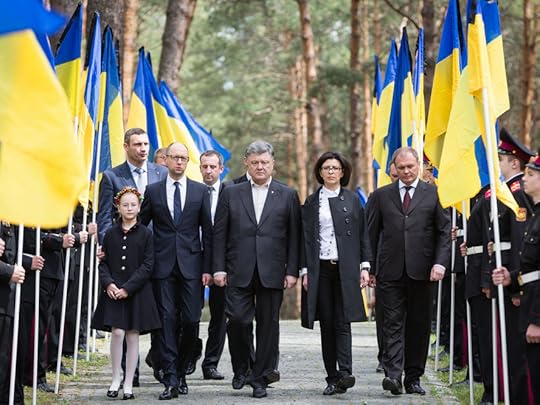 Europe and Central AsiaUkraine
Europe and Central AsiaUkraine
July 15, 2015
Two Mass Graves: Ukrainians and Jews
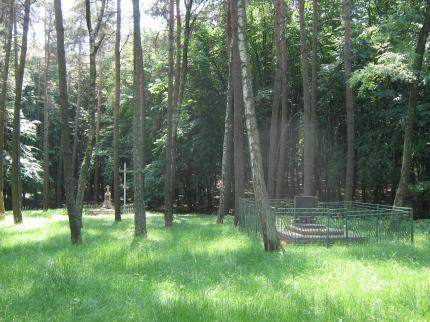
I discovered two mass graves in the forest near my mother’s home town in western Ukraine, Peremyshlyany, located 47 kilometers east-southeast of Lviv.
The former Przemyślany is also a former shtetl. Its prewar population was about 5,000; its current official population is 7,000–8,000, though, given the large number of residents working abroad, it’s probably closer to the prewar level. The composition of the town has changed dramatically. The Jews and Poles, who comprised about 45 percent apiece of the prewar population, are gone: killed, expelled, or fled. About 90 percent of the prewar Ukrainian population had also been killed or expelled, or had fled. Most of the town’s current Ukrainian inhabitants have no roots in Peremyshlyany, being the progeny of villagers who settled there after World War II.
In Peremyshlyany, as in most of western Ukraine’s towns, there is little living historical memory—as opposed to a few monuments and plaques—because its bearers, whether Poles, Ukrainians, or Jews, are all dead. Ironically, I suspect that I, a native New Yorker, know more about the town’s past than the vast majority of its inhabitants. I don’t blame them. Peremyshlyany is dreadfully depressed and seems as far away from any possible socioeconomic revival as one can imagine. (Visit some of the unremittingly gray former coal towns in eastern Pennsylvania for a sense of what it’s like.) The past may look like a needless luxury when the sidewalks are cracked, the roads are crumbling, and most buildings haven’t been plastered or painted in decades.
I had heard that there was a Jewish grave site somewhere in the forest behind the town hospital. It was another bit of the town’s forgotten tragic past and an implicit connection to my mother’s best friend, Fania Lacher, a Jewish girl who survived the Holocaust and became a Greek Catholic nun.
I climbed a steep slope and entered a shady wood populated by tall, straight pine trees. Several hundred yards into the forest, I came upon grassy flat terrain. An ideal killing field, I thought: close enough, but well out of earshot.
I was right. There, straight ahead, was the Jewish gravestone. The inscription, in English, read as follows:
THIS MONUMENT IS DEDICATED TO THE
SACRED MEMORY OF THE 385 JEWISH
MARTYRS WHO PERISHED HERE AT THE
HANDS OF THE NAZIS ON:
NOVEMBER 5TH, 1941
BLESSED BE THEIR MEMORY!
THE KIRSCHNER FAMILY, ISRAEL
THE ROHR FAMILY, U.S.A.
AND OTHERS.
Some 50 feet to the site’s left, I came upon a surprising sight: another grave, this one adorned with a huge white cross. The faded (Ukrainian-language) inscription on the gravestone read as follows:
To the fighters for Ukraine’s freedom
who died at the hands of the
Muscovite-Bolshevik occupiers
1939–1950
The plaque attached to the cross behind the gravestone is only half legible:
On this place
[by?] Bolshevik [illegible]
executioners [illegible]
130[0?]
Ukrainians [illegible]
[their?] remains [illegible]
were reburied [illegible]
year in the local
ce[metery] [illegible]
May their memory be eternal!
So the clearing had been a mass grave for Ukrainian and Jewish victims of the 20th century’s two totalitarian dictatorships—Soviet Union and Nazi Germany.
The Soviet secret police presumably started dumping the bodies of its Ukrainian opponents immediately after helping the Nazis dismember Poland in September 1939. The Nazis presumably decided that the Soviet mass grave was too conveniently located to ignore and used it to dump the bodies of Jews. After the Soviets returned to the region in 1944, they picked up where they had left off in 1939–1941 and used the area as a killing field until 1950, when the Ukrainian resistance movement was pretty much destroyed.
How fitting, I thought, for Ukrainians and Jews, who have needlessly hated, oppressed, exploited, and killed each other for centuries, to lie together, victims of two genocidal regimes.
OG Image: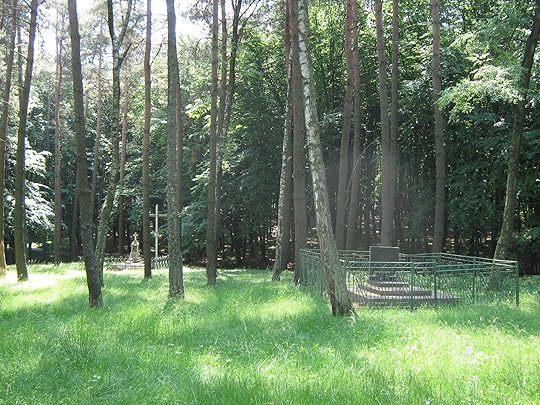 Europe and Central AsiaUkraineWorld War IIJews
Europe and Central AsiaUkraineWorld War IIJews
July 2, 2015
What New Ukrainian Exceptionalism?

Having just lauded Kennan Institute Director Matthew Rojansky and two colleagues for a fine piece on Ukraine’s relationship with the United States, I hate to change my tune and criticize him for a subsequent article co-written with a Ukrainian academic, but their views on the “new Ukrainian exceptionalism” are so divorced from reality as to be mystifying.
Rojansky and Mykhailo Minakov, associate professor in philosophy and religious studies at Kyiv’s prestigious Mohyla Academy, begin their piece by paying due respect to Ukraine’s “struggle not only for its sovereignty, but for its very survival as a nation-state.” Rightly, they argue that “In this hour of need, every Ukrainian citizen and every self-described friend of Ukraine in the international community should not only speak but act in support of Ukraine.”
Then they slip off the rails:
But speaking out and taking action in support of Ukraine have become increasingly fraught in recent months. Russian-backed aggression, relentless propaganda and meddling in Ukraine’s domestic politics have pushed many Ukrainians to adopt a deeply polarized worldview, in which constructive criticism, dissenting views, and even observable facts are rejected out of hand if they are seen as harmful to Ukraine. This phenomenon might be termed the new Ukrainian exceptionalism.
“This exceptionalist worldview,” they write, “is nowhere more evident than in the discourse around Ukraine’s President Petro Poroshenko,” an oligarch supposedly committed to “de-oligrachization.” According to Rojansky and Minakov, “when queried about whether, as an oligarch himself, Poroshenko can be effective in removing oligarchic influence from Ukraine’s politics and economy, many Ukrainians feel compelled to defend their wartime leader by denying that he is, in fact, an oligarch in the first place. Or if he is one, they say, he’s a different kind of oligarch, certainly the best of the bunch.”
I don’t know whom they’ve been talking to and what they’ve been reading, but it’s obvious, at least to me, that their sources aren’t at all reflective of majority views. I’ve been in Ukraine now for close to three weeks and have yet to meet a person who’s spoken kindly of the president, prime minister, parliament, or any oligarch. And public opinion surveys back up my impression. Of the thousands of articles I’ve read about Ukraine in the last few months, I’d say at most 10 percent speak positively about the government. I can’t think of a single one that’s lauded the oligarchs. The fact is that Ukrainians are almost anarchically critical of every aspect of their political system. Indeed, from everyone I’ve talked to, from everything I’ve read, I’d say Ukrainians are almost destructively critical of everything. That may or may not be a good thing, but it’s hardly reflective of the group think that Rojansky and Minakov supposedly encountered.
Rojansky and Minakov then focus their attention on
the country’s far right political forces. Cite the rise of Praviy Sektor, or Right Sector … and many Ukrainians will point to the radical right movement’s poor performance in last year’s presidential and parliamentary elections. Point to the resurgence of symbols and slogans of the Second World War ultra-nationalist Union of Ukrainian Nationalists, OUN, or the newly passed laws banning ‘Soviet symbols,’ canonizing controversial Ukrainian nationalist figures Stepan Bandera and Roman Shukhevych, and they will say that Ukraine has every right to define its own history, even if it does so with blatant disregard and disrespect for that of millions of its citizens now living under Russian occupation or otherwise not fully represented in the government. … [R]aise the problem of private armies in Ukraine, and one is told that the famous ‘volunteer battalions’ are actually completely legal and legitimate police, interior ministry or army units that have been integrated under a single, responsible national command. … The same goes for so-called soldier deputies, commanders of the volunteer battalions elected to the parliament last October, many of whom still appear in uniform and demonstrate scant regard for the boundaries between civilian and military authority. Dashing but bellicose figures like Serhii Melnychuk, Semen Semenchenko and Dmytro Yarosh, we are told, are not really soldiers any more, their grandstanding is just a PR exercise.
Contrary to the authors’ claims, the “observable” fact—to use Rojansky and Minakov’s modifier—is that Ukraine’s right really is insignificant, that the newly passed laws do not even come close to “canonizing controversial Ukrainian nationalist figures Stepan Bandera and Roman Shukhevych,” that Ukraine has as much a right to “define its own history, even if it does so with blatant disregard and disrespect for that of millions of its [pro-Stalinist, pro-Putin] citizens” as does post–Jim Crow America and post-Nazi Germany, which blatantly disregarded and disrespected the history of millions of their racist and Nazi citizens, that Ukraine’s problematic volunteer units represent a tiny fraction of the total volunteer movement, and that Melnychuk, Semenchenko, and Yarosh really are bit players.
But take note of what’s just happened as a result of my disagreement with the authors’ hyperventilation. I’ve effectively taken their bait and proven their point. For the observable fact is that Rojansky and Minakov frame their argument insidiously. They imply that disagreement with their (naturally correct!) views is reflective, not of genuine disagreement or, heaven forbid, the possibility of their being wrong, but of “exceptionalist” group think.
In other words, if I disagree with their claims, as I do, I am obviously incapable of the kind of critical thinking they claim to represent.
Just how is their stance supportive of the critical debate they supposedly endorse? It isn’t. In effect, if not in intent, Rojansky and Minakov are insisting that their critics remain silent—that there be no debate, that group think reign. But, naturally, the group think that Rojansky and Minakov support.
Ironically, Rojansky and Minakov are the “new exceptionalists.” Ukraine, in contrast, is becoming less exceptional, and more like everyone else in the West, with every day.
OG Image: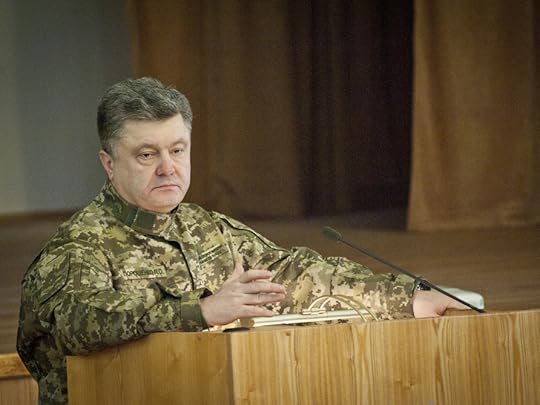 Europe and Central AsiaUkraineUnited StatesUS
Europe and Central AsiaUkraineUnited StatesUS
Alexander J. Motyl's Blog
- Alexander J. Motyl's profile
- 21 followers


